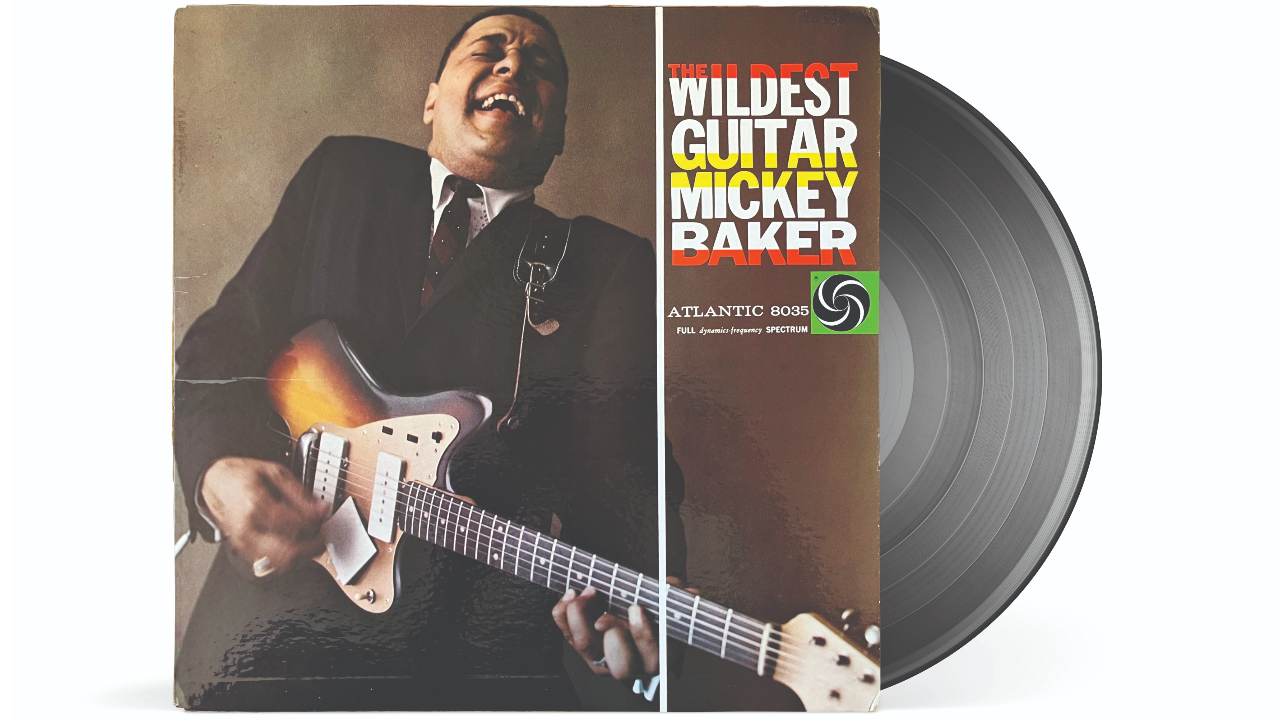“A blues powerhouse that answers the question, ’What if Jerry Lee Lewis played guitar?’” He was one of jazz guitar’s greatest tutors, but on Wildest Guitar, Mickey Baker’s playing is unhinged in the best possible way
When it came to guitar instrumentals, no-one served them hotter than Mickey Baker

In my opinion, Mickey Baker’s The Wildest Guitar is in the top five of greatest album covers. I’ve stared at Mickey’s face, I’ve analyzed what his left hand is fingering. I’ve looked to see if his Fender Jazzmaster is plugged in. And I’ve always wondered something else… But more on that later.
Beyond its cover, The Wildest Guitar also happens to be a great record. Mickey Baker’s name might be like Mel Bay’s to some of us. Before the internet, Baker’s Complete Course in Jazz Guitar was one of the few books that unlocked some of the guitars’ alluding mysteries, and it really helped me. His book aside, Mickey is also known for the 1956 hit Love Is Strange, which he recorded with his wife as the duo Mickey and Sylvia.
But if Mickey had only released The Wildest Guitar, his name would still hold a place in guitar history. It’s a relentless marathon that forces the listener to keep up over 12 blistering tracks. Its pace, intensity and overall concept are not for the squeamish or casual listener.
Released in 1959 on the Atlantic label, The Wildest Guitar features Abie Baker on bass, Pelton Evens on drums, Everett Barksdale on guitar, and Herman Foster on piano, with Mickey playing his Jazzmaster like there’s no tomorrow.
Mickey is credited for writing four of its songs – Whistle Stop, Midnight, Midnight, Milk Train and Baker’s Dozen – but what’s noteworthy is how even well-trodden tracks like Lullaby of the Leaves and Autumn Leaves are played with equal ferocity. The Wildest Guitar is a lull-free zone.
Side one kicks off with the Third Man Theme, played with such ferocity that I can imagine Mickey downstroking forcefully, his strings moving downward in the saddles. Everything is embellished by whammy-bar flourishes and played with no holds barred.
Whistle Stop is up next, with Mickey shredding over a classic blues groove. Song three is Cole Porter’s Night and Day, reimagined here with guitar slides, double-stops and flash over a militaristic accompaniment.
All the latest guitar news, interviews, lessons, reviews, deals and more, direct to your inbox!
Everything is embellished by whammy-bar flourishes and played with no holds barred
On his own Midnight, Midnight, Baker wrangles blues lines from his Jazzmaster in a style almost like Freddie King. An aggressive Autumn Leaves functions as the introspective piece here, as Mickey plays the melody with a voice-like quality, and with some minor 6th lines thrown in for good measure.
Baia closes side one. Engineer Tom Dowd captures the song’s surf-rock leanings with expertise, and I love Mickey’s performance. This is the track I’d play for the uninitiated. It’s got it all.
Side two opens with Milk Train jumping off the vinyl. Old Devil Moon follows with an almost Dick Dale approach, but unlike Dick, Mickey can play over changes. Baker and his band take no prisoners on Chloe, and while, personally, I would have preferred a slow one to catch my breath, Mickey ups the ante with nonstop excitement.
His original Baker’s Dozen is a blues powerhouse that answers the question, “What if Jerry Lee Lewis played guitar?” Next up, Mickey re-imagines the classic Lullaby of the Leaves as a smoky minor blues before closing out with the high-energy encore Gloomy Sunday.
Having studied Mickey Baker’s Complete Course in Jazz Guitar in my teens and learned my first G major-7 grips, I had no idea that he could play like an unhinged wild man. The Wildest Guitar shows us this other side of the artist, but it’s never dumb or beneath us. Mickey Baker was a great musician who played every note with muscle and heart.
As for that lingering question I mentioned: Can anyone tell me what is that thing that looks like a Post-It on Mickey’s pickguard?
Jim Campilongo has 14 critically acclaimed instrumental records available on vinyl, CD and digital download here.



